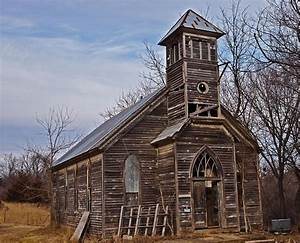Get in touch
555-555-5555
mymail@mailservice.com
2 Kings 11 - 12
The Temple Gets a Renovation
Do you remember the warrior Jehu who drove his chariot like a madman? The one who drove like someone you know? He was ordered to kill the entire house of Ahab, including Israel’s current King Joram and Ahab’s widow, Jezebel. Well, the killing got a bit out of control and ultimately the victims included the Ahaziah, king of Judah, along with a lot of government officials, and the priests of Baal, and probably anyone he disliked, like a bully from grammar school or the barber who gave him a bad haircut the month before.
Well, Athaliah, the mother of one of his victims, Ahaziah, the king of Judah, grieved in a peculiar way. She didn’t seclude herself in the palace for years nor did she wear black clothing until the day she died or refuse to eat or play bridge with her lady friends. Instead, she went on a killing spree, killed her own children and made herself Queen of Judah. She was worse than Magda Goebbels, the wife of Nazi Germany's Propaganda Minister Joseph Goebbels. Who, as WW 2 was coming to an end in Europe, murdered her six children before committing suicide with her husband. Neither Athaliah nor Magda would ever receive the MOTHER OF THE YEAR Award.
Chapter 11:1, “When Athaliah (sometimes spelt Athalya) the mother of Ahaziah saw that her son was dead, she proceeded to destroy the whole royal family.” Now if you are going to kill the entire family (no, I am not recommending that you do) be sure to take a head count so you don’t miss someone, like Athaliah did.
Jehosheba, the sister of the late king of Judah, Ahaziah, was also the wife of the high priest Jehoiada. She took the sole surviving grandchild of Athaliah, Prince Joash, and hid him in the temple for six years (verse 3). He survived the massacre, and his absence wasn’t even noticed. Perhaps Jehoiada reported to her that the mission was completed and all the descendants of Amaziah who could make a claim for the throne of Judah have been eliminated.
With her position as queen secure, she surrounded herself with friends from Phoenicia and ruled with an iron hand, spreading a reign of terror in the land.
During all this time, Jehoiada, the wise and pious High Priest, made many friends and followers, who, like himself, had remained faithful to God and hoped for the day when the House of David reinstated on the throne of Judah.
When little Joash was seven years old, Jehoida decided that the time had come to liberate Judea from the foreign woman who had desecrated the throne of David.
The next big news story is a coup to eliminate Athaliah and to put the young prince Joash onto the throne of Judah.
2 Kings 11:4, In the seventh year Jehoiada sent for the commanders of units of a hundred. . . and brought them to the temple, made a covenant with them, then showed them the king’s son, Joash.
Having secured the allegiance of the military and religious leaders, he had the temple personnel seal off the temple area (verse 11). Security was very tight.
Verse 12, “Jehoiada brought out the king’s son and put the crown on him; he presented him with a copy of the covenant and proclaimed him king. They anointed him, and the people clapped their hands and shouted, ‘Long live the king.’”
When Athaliah heard all the shouting of “Long live the king” she was at first puzzled, then she went next door to the temple to see what was going on. Puzzlement turned to shock, which turned to anger as she saw that child standing by the pillar and everyone shouting their approval and blowing trumpets. She “tore her robes and called out, (verse 14), ‘Treason! Treason!’”
Treason was the least of her worries. She wasn’t given the option of moving to the country for a quiet retirement with a pension and paid staff to care for her. Nor could she go into exile, perhaps back to her family’s homeland.
Jehoiada commanded the captains of the guard to take Queen Athaliah out of the temple and put her to death, along with anyone who followed her (verse 15). The guards obeyed, and Athaliah was executed by the Horse Gate on the palace grounds (2 Chron. 23:15). The most infamous queen of Judah died much as did her mother, Jezebel, the infamous queen of Israel.
Serving now as the king’s proxy, Jehoiada made a covenant between the king and the people (2 Chron. 23:16) that they would be the Lord’s people and no longer worship Baal as the queen mother had encouraged (verse 17). The people stormed the temple of Baal and killed the idolatrous chief priest (verse 18). The Baal priest Mattan was killed in the temple and the altar was pulverized (2 Chron. 23:17).
Then they marched over to the palace, placed King Joash on the throne (with a booster chair I imagine) and all the people of the land rejoiced
(verses 19-20). Then it was probably time for the little guy to take a nap with his favorite stuffed animal as the adults found other ways to celebrate.
Chapter 12
King Joash did what was right in the eyes of the Lord “all the years Jehoiada the priest instructed him.” Oh, oh. Is this a hint of bad things to come once Joash was on his own? I’m afraid so, but for now, after a good night’s sleep, the next chore was to repair the temple.
A fund-raising campaign was conducted to pay for the costs of repairing the long-neglected temple. Verses 4-5, “Collect all the money that is brought as sacred offerings to the temple of the Lord. . . .and let it be used to repair whatever damage is found in the temple.”
With the money collected, (verse 12), “they purchased timber and dressed stone for the repair of the temple. . . and met all the other expenses of restoring the temple.”
The purchased timber and dressed the stone? How badly damaged was the temple? It apparently needed more than a good scrubbing and a coat of paint. I would like to be able to see before and after pictures of the temple. Maybe it looked as bad as this church.

Verse 15, “They did not require an accounting from those to whom they gave the money to pay the workers, because they acted with complete honesty.” How would they know that they were honest unless they did forensic accounting?
There seems to be a time gap between the restoration of the temple and the next passage which describes an attack from Hazael, the King of Aram.
Hazael attacked Gath (hometown of the giant Goliath) located west of Judah and was heading towards Jerusalem (verse 17). Joash took all the treasures of the temple and palace and gave them to King Hazael (verse 18). I guess that Hazael wasn’t motivated by hate as much as by greed. Once the bribe was paid, he returned home, with a big grin on his face.
After the high priest Jehoiada died, King Joash began listening to wicked advisers, and Baal and Asherah worship revived in Judah (2 Chron. 24:17–19). And when God’s patience ran out, he allowed the king of Aram to attack, looting the nation.
The people of Israel turned against him and when he fell ill his servants assassinated him. He was succeeded by his son Amaziah. Though he was interred in Jerusalem, he was excluded from burial in the royal sepulcher (2 Chron. 24:25).
Why was he excluded from the royal sepulcher? The U.S. has military cemeteries in several European countries where our fallen are buried. But if a soldier was executed for rape or murder, they would still be buried at the military cemetery, but not with the other soldiers. There is a section hidden from view by shrubbery where criminals in the military are buried. Their graves are identified by numbers, not their names. Perhaps not being buried in the sepulcher was a way of diminishing the degree of honor he was to have received. I wonder where other kings were buried.
Of course, if you want to learn more about his reign, you know where to go. Find a copy of the annals of the kings of Judah. Good luck with that.
What can we say about Joash? 2 Kings 12:1–3, says that Joash “did what was right in the eyes of the Lord all the years Jehoiada the priest instructed him.” As long as he surrounded himself with wise, good people, he was more likely to do what was right in the eyes of the Lord.
Joash did make religious reforms, but they were mostly superficial. Under the influence of evil advisors Joash revived the Canaanite religion that they had earlier suppressed. Apostasy is like cancer; you have to get it all out or it will come back. As one writer wrote, the fire of a spiritual reform can burn brightly, for a time, but the winds of apostasy can snuff out the flame.
Be careful who you listen to and be open to wise counsel, even if it isn’t always what you want to hear.
Recent Articles
Show More
Share this:
Share
Tweet
Share
Mail
Start Here...
Why Study the Bible?
Don’t many consider the Bible to be just a book of myths? Why do we read the Bible rather than the sacred literature of other religions?
How do we know that it is from God? How do we know that what we have today is an accurate translation from the original? Is the Bible complete or have there been some books that have been lost?
We should be able to answer these questions, and there are answers! So start here!
Answers to Common Bible Questions

December 17, 2021
Lent is a six week period of spiritual devotion starting on Ash Wednesday and ending at Easter. Those who observe Lent usually give up something for Lent. Some might give up coffee, or soda pop, or alcohol, or chocolate. May I suggest that you give up something that will really impress God and make this season of Lent one of the most memorable and meaningful seasons of your life? May I suggest that if you are giving up something, why not give up some of the acts of our sinful nature mentioned in Gal. 5:19? Why don’t we give up lying about others? Do you think you can give up the hate you feel towards others? How about envy, can we work on putting envy aside this year? How about giving up on the naïve idea that all pastors are mature Christian leaders whose word should always be accepted, rather than wolfs in sheep’s clothing (Matt 7:15). How about giving up the idea that everyone in church is a real Christian (Matt 7:21-23). How about giving up your desire to seek revenge on those who have hurt you (Matt 18:21-22)? If you are insecure and feel threatened when you see the success of others in ministry, how about giving up efforts to hinder others who have been called to minister (Rom 12:4-8)? Of course it is easier to give up something like chocolate, etc. and make yourself feel like you are doing something that is pleasing to God. If you are not willing to give up unchristian behavior, might I suggest something that will really please God this Lent? Give up all evidence of your profession of Christian faith, such as books, pictures and jewelry. Don’t talk about God, Jesus or the Church. I think God would appreciate it if you would stop giving HIM a bad name by the way you live. Let’s give up what hinders our witness and become a better ambassador for Christ (2 Cor 5:20) this Lenten season.

December 17, 2021
In Matthew 2:1-2 is says that the magi saw "His star in the east." What was this star that guided these men to Jesus? Some have suggested that it could have been a comet, an asteroid, or perhaps a meteor or an especially bright star. The problem with these suggestions is that these physical things either quickly move across the sky and then disappear or are too far away to provide directions with any precision. It would be hard to get directions from such objects. The "star" had to move constantly or intermittently at the same pace as the magi. Then it says that it hovered over the house where Mary and Joseph had moved to with Jesus. It hardly sounds like a comet or meteor or a star as we know them. Can you think of another time that people in the Bible were guided by some form of light? How about the time when Moses was leading the Israelites out of Egypt? He didn't have a global positioning system with him. He did have a pillar of fire that led him at night (Ex 13:21-22). We see this light in Solomon's Temple (2 Chron 7:1-3) and when the Jews were about to go into Babylonian captivity, we see it leaving the Temple (Ezek 9-11). In the New Testament we see it at the birth of Jesus (Luke 2:9) at His transfiguration (Matt 17:5) and His ascension (Acts 1:9). What exactly was this guiding light? The word "star" can also be translated as "radiance." It appears that it was this "radiance" that guided Moses and the magi. The Jews call this the "Shekinah", a physical manifestation of the glory of God in the form of a supernatural radiance. This, I believe, is what the Star of Bethlehem was.

December 17, 2021
Imagine that you are the pastor of a church. A young married couple is having some difficulties in their relationship and they seek counsel from you. On Monday the wife comes in to give her assessment of their marriage. What do you think she will say? She might say that she is a hardworking, caring and supportive wife and that it is her husband who is the neglectful, insensitive brute and the source of all problems in the marriage. You feel so sorry for this wife and when you see her husband in the hallway, you think to yourself, "What a jerk." On Friday the husband comes in and gives his assessment of the marriage. He tells you that he is hard working and very generous and that she is the major problem in the relationship. As the pastor, you are wondering if they both are talking about the same marriage. Each person tells you what makes them look best and their spouse the worst. Where is the truth? The truth is probably somewhere in between Proverbs 18:17 says, "The first to present his case seems right, til another comes forward and questions him." There are conflicts in all relationships, between spouses, parents and children, employees and employers. When you hear one side of a story, don’t assume that what you hear is the complete truth. And don’t pass on to someone else what you have heard. Probably, at least some of what you heard is untrue to gain your support in a conflict.
Questions?
Send us your questions or comments. We respond to every message.
About us
Encouraging Everyone to Study the Word of God and do the Work of God.
Useful Links
Contact info
Join our family
Contact Us
Thank you for contacting us.
We will get back to you as soon as possible
We will get back to you as soon as possible
Oops, there was an error sending your message.
Please try again later
Please try again later
The Berean Bible Ministry
This web site is dedicated to the study of the Bible, with no advertising and no popups. It is supported by our Bible study group.





